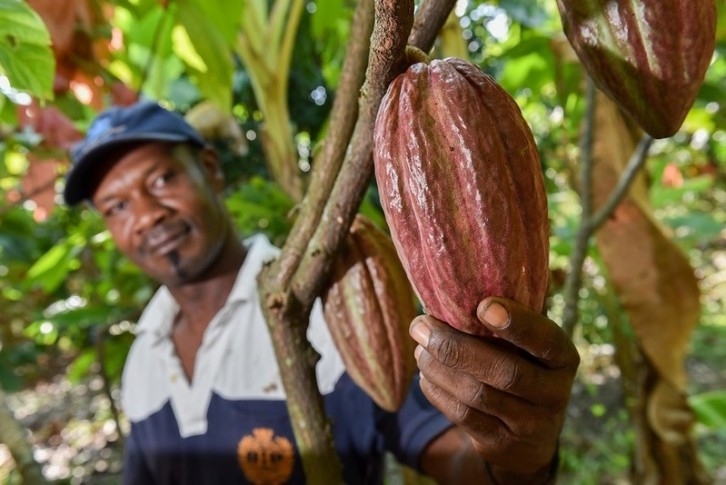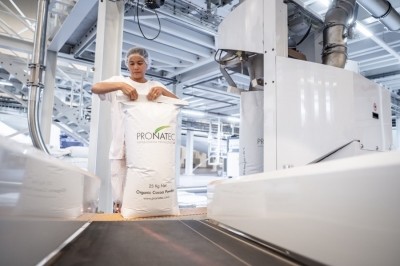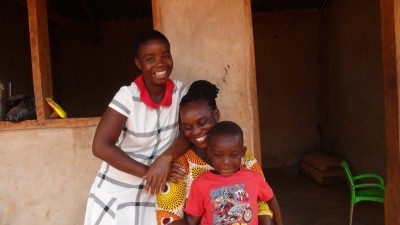Sustainabilty
SWISSCO publishes report on 15 innovative projects in sustainable cocoa production

The public-private partnerships amounted to an investment of CHF 26 million ($29.67m) and was co-financed by the Swiss State Secretariat for Economic Affairs (SECO). The report ‘Unlocking Innovation: Results and Learnings from 15 Value Chain Projects' is a summary of the accomplishments and insights gained from these initiatives, drawing upon data analysis and stakeholder consultations.
Results so far
From 2018 to 2022, SWISSCO members and partners reached 86,472 farm households during this project cycle. The female-headed farm households comprised 21,539 (approximately 25 %) of the total households reached, underlining a significant demographic factor in this endeavour.
Mapping efforts were extensive, the report states, encompassing 92,261 polygons and 95,272 GPS-marked farms. Capacity-building initiatives were notably successful, with a substantial 47,434 participants in income diversification training (39% female participants) and 66,333 participants in climate-smart agriculture training (24 % female participants).
Additionally, the promotion of sustainable farming practices such as agroforestry demonstrated encouraging outcomes, with 23,835 hectares dedicated to new agroforestry systems, constituting 13% of the total cocoa cultivation area.
SWISSCO Executive Director Christian Robin told ConfectioneryNews: "We are grateful to our members for openly sharing their experiences in the implementation of their projects. Also the approaches that have not worked have their justification. Because we can overcome the sustainability challenges in the cocoa sector by continuously learning from each other.
"There is no 'silver bullet' to the complex problems we face. However, there is a shared learning process that we will continue to pursue together."
The report also showcases the transformative power of innovation in the Swiss cocoa value chain, inspiring continuous improvement and sustainability. Harnessing knowledge from these projects, SWISSCO said it aims for a brighter, more ethical, and prosperous future for the Swiss cocoa value chain, “contributing to a broader dialogue on sustainable value chains worldwide.”
A Ghanaian cocoa farmer said: “I have always been a farmer, but I also worked in construction because I never believed I could get enough out of farming to make ends meet. Now, my perception has changed. Not only do I get good farm produce, but I also earn more income. Now I do only farming. This project has diversified and increased my income, changing my standard of living - I now have a television, a gas stove, and a bicycle, and roofed my uncompleted building.”
Forward-thinking
Leveraging local structures like Village Savings and Loans Associations (VSLAs) and innovative financing mechanisms plays a vital role in scaling efforts, according to the report. "Collaborations with national governments, digitalisation for efficient service extension, robust monitoring, and navigating governance challenges are crucial strategies to drive sustainability and address complex cocoa sector challenges," the authors said.
SWISSCO has confirmed that a new SECO co-financing facility from 2023 to 2026 will allow members to apply these learnings, aiming to leverage the resources of all supply chain partners and other sectors to contribute to the SWISSCO Roadmap 2030 goals effectively.
Monica Rubiolo, State Secretariat for Economic Affairs SECO, said: “Besides giving an economic perspective for these 90,000 farmers and their families, the projects have also sparked innovations in areas such as traceability, health insurance and sustainable production practices methods in different geographies, from Colombia to Ghana, passing by Cote d’Ivoire and Madagascar.
SWISSCO also said the key learnings of this project phase will shape members' future activities when taking on the scaling of promising innovative approaches. “A prerequisite for the successful scaling of projects is land tenure security and resource availability of farmers,” the report concludes.






